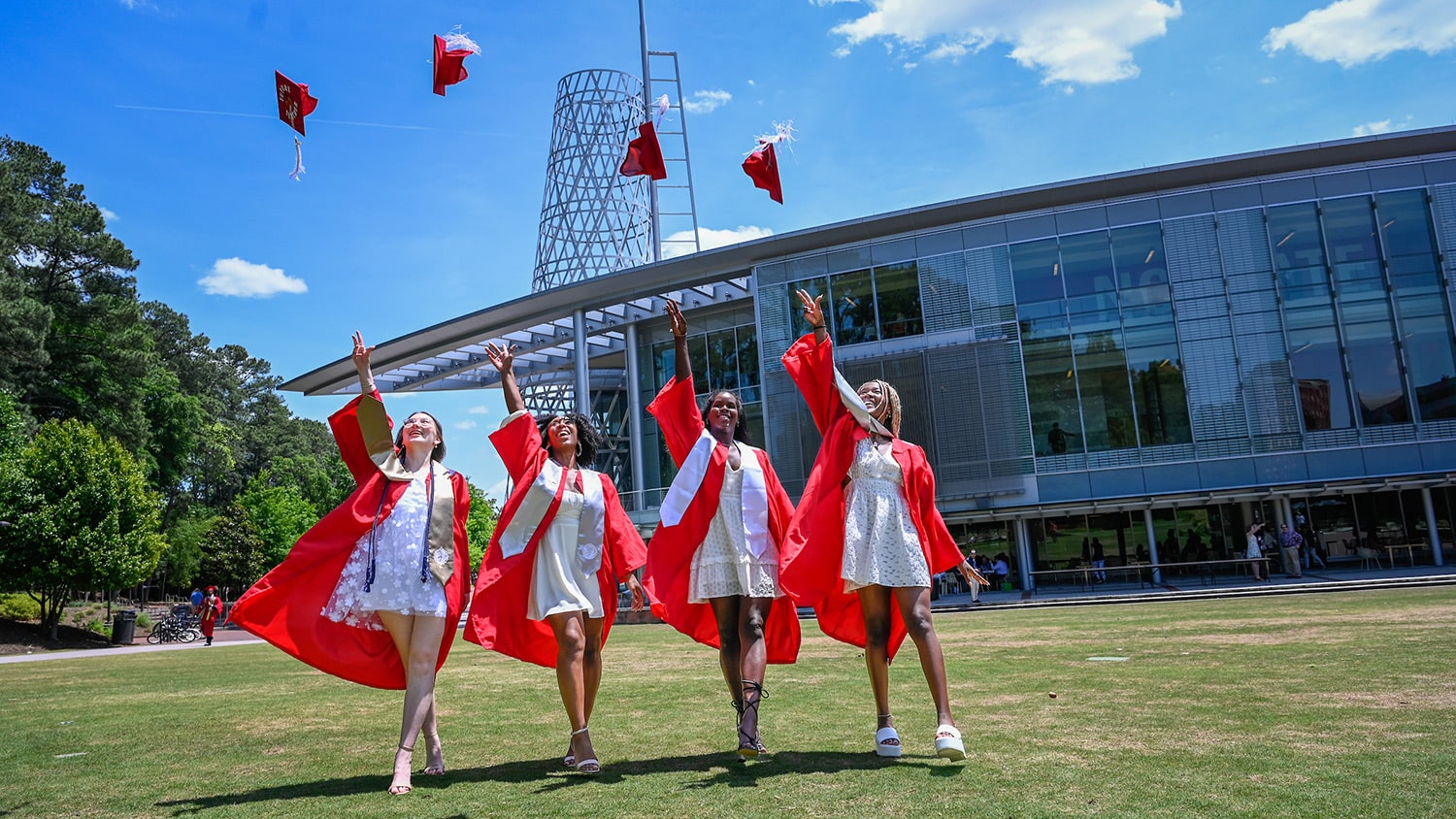NC State to Lead Local Gates Foundation Effort to Help Low-Income Youth Finish School, Get Training, Find Jobs
The Bill & Melinda Gates Foundation and MDC, a nonprofit organization dedicated to expanding opportunity and reducing poverty, today announced that Raleigh has been selected as one of four cities to participate in the Partners for Postsecondary Success (PPS) initiative as part of a Gates-funded national effort to improve postsecondary completion rates among low-income young adults.
North Carolina State University, which was awarded the grant on behalf of the community partnership, is the lead organization of the Raleigh Colleges and Community Collaborative and will coordinate and administer the project.
Led by MDC, PPS is a three-year demonstration project to work with community partnerships focused on increasing the number of low-income young adults who earn a postsecondary certificate or degree and go on to get jobs that pay a living wage. Raleigh is one of four community partnerships in Texas and North Carolina – two in each state – that will receive coaching and funding to examine the current and historic status of low-income young adults in their communities and identify data-driven strategies to advance postsecondary and employment outcomes. PPS is expected to help communities improve the performance of their postsecondary institutions; deepen collaboration between education and industry to forge student pathways to good jobs; and align and leverage resources to sustain the partnership effort beyond the demonstration period.
The four selected sites are receiving Gates Foundation planning grants for seven months to develop a specific plan to improve postsecondary and employment outcomes for low-income young adults. Sites that successfully complete the planning phase and submit an implementation proposal will be considered for up to $1.5 million in additional Gates Foundation funding over approximately two years to launch their local community initiatives.
“Too often low-income young adults are unable to see a clear path to a meaningful career, in part due to misconceptions about the full range of postsecondary options available to them,” said David Dodson, president of MDC. “It is imperative for disadvantaged communities across the South, and the nation, to create avenues of opportunity for these young adults. The global competitiveness of our nation is dependent upon it.”
Drawing on its existing network of partners, NC State joined with numerous local organizations – including Meredith College, Peace College, St. Augustine’s College, Shaw University and Wake Technical Community College; the Wake County Public School System; the Greater Raleigh Chamber of Commerce; and other educational, business, faith-based and nonprofit agencies – to develop a successful application.
“NC State has the capacity to draw upon existing partnerships and build new ones to focus on helping low-income youth graduate from high school, get postsecondary training or education and then successfully enter the workforce,” says Dr. Jose Picart, vice provost for diversity and inclusion at NC State and project director on behalf of the community partnership. “As part of this project, we intend to identify and catalog existing programs and initiatives that already help low-income youth gain the skills to readily move into the workforce. We’ll make this catalog of youth- and career-development programs available to the Raleigh community.”
Picart added that more community partners and youth services providers are welcome to join the collaborative to help low-income youth in Raleigh graduate from high school, earn postsecondary credentials and get jobs.
“We were impressed by the clear commitment and sense of urgency that community partners in our four cities showed for improving postsecondary success rates and better equipping their low-income young adults with job-ready skills,” said Bonnie Gordon, a senior program director at MDC and Partners for Postsecondary Success project leader. “Raleigh is a state capital that brings attention to issues in a very public way. It has great potential to serve as a role model for other communities in North Carolina wrestling with these very complex issues.”
“As our economy is demanding increasing skills, the economic viability of cities is directly tied to the education of their citizens,” said Hilary Pennington, director of Education, Postsecondary Success, and Special Initiatives for the Gates Foundation. “The lessons learned though the PPS project will provide valuable insight into what communities can do to make college completion happen.”
Texas and North Carolina are two of several states where the Gates Foundation is focusing its Postsecondary Success work, due to the high numbers of low-income young people who reside in those states. Charlotte was selected as the other North Carolina participant.
Guided by the belief that every life has equal value, the Bill & Melinda Gates Foundation works to help all people lead healthy, productive lives. In developing countries, it focuses on improving people’s health and giving them the chance to lift themselves out of hunger and extreme poverty. In the United States, it seeks to ensure that all people – especially those with the fewest resources – have access to the opportunities they need to succeed in school and life. Based in Seattle, Wash., the foundation is led by CEO Jeff Raikes and co-chair William H. Gates Sr., under the direction of Bill and Melinda Gates and Warren Buffett.
MDC is a nonprofit organization headquartered in Chapel Hill, N.C., that has been publishing research and developing programs focused on expanding opportunity, reducing poverty, and addressing structural inequity for more than 40 years. MDC’s focus is on: defining gaps and mobilizing leaders to create a will for change; demonstrating sustainable solutions and developing them into effective models; and then incubating them so they can be replicated at scale for maximum impact.
– 30 –
- Categories:


